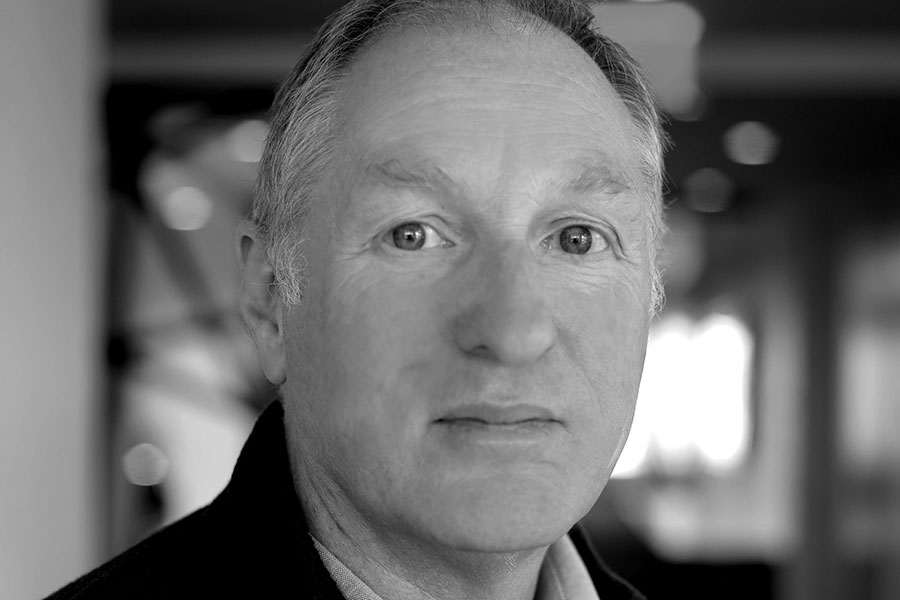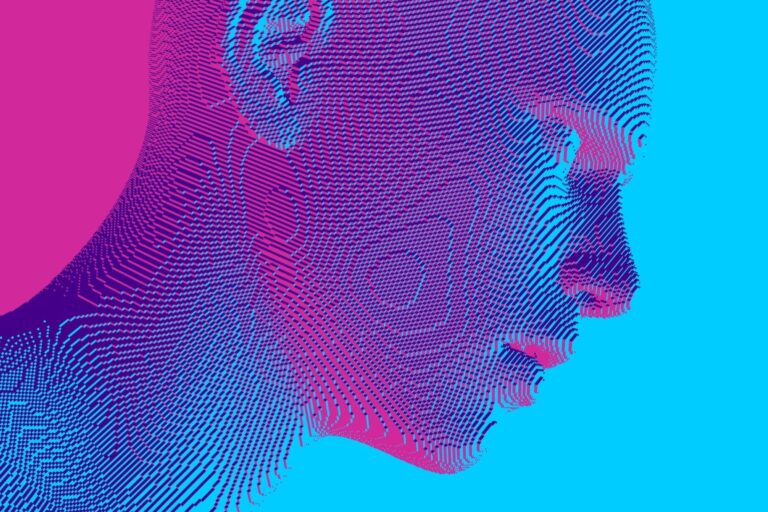Not since the industrial revolution has society reckoned with a change as significant as this. The Computational Revolution is here and global consultancy Bain & Company, alongside technology partners Workato and Skan AI, says work is about to become altogether more human.
How do you work? Where do you work? What do you even want from work?
The COVID-19 pandemic forced many seismic changes on the world, including accelerating a fundamental rethink about not only when and how we clock on each day, but why. As fast advancing technologies promise to connect and compute in ways that catalyse this basic reassessment, businesses and organisations are considering how best to shape themselves to accommodate the change and thrive.
“The focus,” suggests Ted Shelton, Expert Partner: Business Process Redesign at global management consultancy Bain & Company, “has to be on redesigning work on human principles; problem solving, creativity and interpersonal relations.
“We have to ask the questions: is it the right work, is it done in the right way, and is it done by the right people?”
To fully explain and understand the future of work, as Shelton sees it, you have to first look back. He talks of three critical moments in the journey of humanity. First is the origin of civilisation through the development of agriculture, which allowed humanity to stay still, build cities, develop writing, knowledge, and government. The world as shaped by the Agricultural Revolution dictated how almost all of us lived until the 19th century, when the Industrial Revolution that began a century earlier transformed everything a second time.
“The mechanisation of labour meant that we moved from 90 percent of the population working in agriculture, to three percent. It led to everything we know about society today: global corporations, industry, the products we use every day,” says Shelton.
The third major inflection point for society – no less dramatic than those that came before – has now arrived.
“The interesting thing about change is that it happens slowly at first and then all at once. The first thoughts around artificial intelligence began around 60 years ago. In the last ten, AI has exploded, and an enormous number of innovations have occurred that have changed what’s possible.
“I wake up every morning and think, wow, what was impossible yesterday, is possible today. The computation revolution will really change everything about our society.”
In 2023, a reactionary subtext for the change we are seeing has already been written: “AI will take your job”. Yet in Bain’s ground-breaking report, The Working Future: More Human, Not Less, it argues that AI and automation will actually help rehumanise work, taking out routine tasks and allowing for creativity and innovation to shine. To survive and thrive in this rapidly changing work environment, organisations must use emerging connectivity and AI technologies to power a happy, motivated and fulfilled workforce, rather than replacing it. Only then can they win what Bain calls the “war for talent”.
New Realities
Today’s organisations – let alone tomorrow’s – are confronted by three macro-level trends altering the character of the working population: A shifting attitude to work, demographic change, and the maturation of hugely disruptive new technologies.
A shortage of skilled labour is already a genuine problem, a fact borne out by Bain’s extensive research for its Working Future report, for which it surveyed 20,000 people across 10 countries representing a global cross-section of cultures, wealth, and population demographics.

“We found interesting challenges for corporations in that report,” Shelton explains. “We’ve been looking at the behaviour and attitude of workers towards work since the late 1800s, and if you ask them what’s more important to them, work or the rest of their life, that has reversed. Work just isn’t that important to them anymore; they’re not willing to do things that are not as fulfilling.”
It’s a problem compounded by demographic shift – the workforce is trending older, with a relative reduction in the pool at entry level.
Bain believes organisations can meet this dual population challenge by rethinking their talent strategies through the lens of the individual and a shared investment in achieving their full potential. Enshrining workforce experience as a central operational objective, alongside generating value for shareholders, will become an essential competitive tool as organisations seek to attract, retain and maximise the creative output of their people.
“We’ll have an expensive human workforce,” forecasts Shelton, “but luckily technology is coming along just at the right time to counterbalance that.”
Bain is convinced that maturing technologies of connectivity, AI and automation will usher in fundamental change to the physical and mental labour people actually do. It is already happening.
But it’s less a question of asking what people will do, and more about how tech can free their working lives from the drudgery of repetitive tasks – you could include commuting to an office in that – and enable them to be more creative.
“It’ll be disruptive,” says Shelton. “But it’s all about innovation – that’s what humans are good at. If we’re really going to solve the problems that we have in the world, and therefore for all our organisations, it’s going to be through innovation. How to organise human productivity to encourage innovation is a key question.”
Fully understanding the coming tsunami of change is vital to Bain’s purpose as it consults with partners and clients to transform their business processes. Companies have sought out Bain’s services for the last 50 years when there have been challenges to meet around structural, financial, cultural, or market regulatory issues – the thorny issues of business improvement. The key to success today, however, is to understand that transformation no longer has a lifecycle.

“Every company needs to be constantly rethinking what it produces, how it delivers, what it charges, how it organises around production and delivery. That means having people whose job is to actually change the business. When we look at leaders in every industry, they are spending more money on transformation than on business as usual. Transformation is going to be a constant. It’s not a project, it’s not a programme, it is an operating model.”
Helping clients probe and simplify their business processes is central to how Bain approaches its work. It shakes free the inertia that can accumulate around complex organisations and systems by examining the roots and branches of their processes and rationalising them, end-to-end. Once again, it’s Shelton’s idea of the right work, done in the right way, by the right people.
As new technologies converge and begin to carry far larger loads in many businesses processes, inviting a workforce to operate differently is as essential as it is inherently tricky. As The Working Future makes clear, however, exercising change that’s rooted in improved worker experience as a guiding objective will ultimately help attune organisations’ most precious resource into one that’s stable, innovative, and attuned to continuous improvement.
Partners for the future
Bain is one of the world’s largest, most influential management consultancies and centres its mission on helping the world’s most ambitious change makers ‘define the future’. As such, it understands well the seismic consequences that emerging technologies are about to have, as well as the tools it can deploy to help its clients manage the change and seize the opportunities it presents.
Skan AI
Skan AI, at just four years old, is already helping to revolutionise how organisations can peel back the layers of their most nuanced processes and create the context in which they can be transformed. Using novel computer vision and AI technology, Skan’s tools log the clicks, applications and actions taken by workers – wherever they are – to build a whole new understanding of exactly how work gets done.
“There is a huge gap between what organisations think their processes are, and what they actually are,” says Avinash Misra, Founder and CEO of Skan. “Historically we have had two ways of understanding how work gets done: We can talk to people and ask them, and we can look at backend data. Both leave a lot to be desired.”
Human beings are naturally bad at describing exactly what they do to get something done. Misra uses the example of asking someone how to drive a car: You will be given a loose abstraction of how to stop at a red light (‘hit the brake’), but no information at all about the complex interplay between vision, neurons, muscles, peddles and brake pads that actually constitutes the work.
Likewise, back-end data only records the results of work, not the work that led to it being committed to the system. Skan’s mission is to fill the “huge chasm” of process know-how to help organisations tune out as much costly triviality for workers as possible.
“We want the workers of the world to spend a lot more time on the things that add value, and less time on the preparation of how they get to those outcomes,” says Misra.
Skan’s proposition is of obvious utility in Bain’s mission to help organisations shape their human-centred future of work, and the companies have formed a partnership to work together to that end.
Vinay Mummigatti, Skan’s EVP of Strategy and Customer Transformation adds: “Most of the time our customers are driving blindfolded, so giving them the data, models and visibility to how humans work leads to various outcomes.
“Bain is clear about where this whole trend is headed in terms of understanding the human aspect of work. We gather the right data points for them to make hypotheses to drive their strategies to transform, train, and enable a particular workforce.”
Where AI and automation are the technologies disrupting how workers work, Skan provides an automated system to pinpoint where they can be applied to ensure they are done so in service of humans.
Workato
And when it comes to automation, organisations can turn to Workato, whose modern business operations platform is used by enterprises to automate their business and IT processes.
Any time-consuming and complex business process can be automated, leading to empowering humans to be more effective, innovative and efficient. For example, where an inbound sales lead automatically generates entries in Salesforce, an Outreach process, a demo booking, a Slack notification, that means a talented sales rep somewhere in the business now has more time to talk to customers about their needs.
“When people look at automation, they do so mostly from an efficiency standpoint. However, Workato approaches automation from a very unique and holistic perspective. It is about efficiency, effectiveness, and experiences – all together,” says Bharath Yadla, VP of Strategic Initiatives at Workato.
“But when we talk about the future of work, it is not just about employee experience, but rather the ‘Future of Business’. The ‘future of work’ is the bridge to the ‘future of business’, and that revolves around the five towers of automation: customer experience, employee experience, supplier and operations efficiency, front-office systems, and back-office systems. Processes, systems, and people need to work across these towers to drive real business impact. The ultimate goal of creating business impact is building a platform-driven business.”
Workato is making business process redesign through automation more impactful, and Bain is leveraging that capability via a partnership to bring the benefits to its clients. While Bain provides the consulting and strategy for enterprises by identifying and redesigning processes, Workato makes it a reality by automating them. The automation market is converging, and Workato visualises automation as a spectrum. It brings together organisations’ data, processes and experiences in unison.
In fact, Workato uses its own platform to automate its own business operations, including employee experience. Carle Quinn, Chief People Officer at Workato, points to the company’s own approach in encouraging an aspirational attitude towards automation and the culture of dynamic change and innovation it allows.
“We do hackathons in Workato where we actually try and get people to automate themselves out of their existing job,” she says.
“The point is to help take them into that next level role. People want to add more value, they want to have more impact. They don’t want to stay focused on transactional activities or tasks. So they actually get really excited about thinking differently about the value that they can bring.”
Quinn cites research that found, post-pandemic, 70 percent of people no longer say they fear automation is going to replace jobs, instead sharing Bain’s belief that it can serve to make their jobs better.
“I can tell you that our vision for the future of work within Workato is to inspire our employees to reach their full potential and thrive in life – in a way that helps to impact and drive value for our customers. To do that, you absolutely have to ask: ‘Are there other ways to do this task more effectively?’ In order to get that worker passionate about the impact they can have, we have to figure out the things they don’t need to do,” she says.
I wake up every morning and think, wow, what was impossible yesterday, is possible today.
The future of work, according to Bain and the partners it engages on the leading edge of change, will see declines in the number of people spending time in manual and labour-intensive roles, including in manufacturing, office and administration, sales, and more. On the flipside, the number of roles people can perform instead is almost endless. When it comes to problem solving, creativity, and interpersonal connections, humans freed of low-value routine are liberated to innovate and develop new opportunities for themselves, their employers, their colleagues, and their communities.
Shelton’s call to focus on redesigning work on human principles strikes to the heart of both the challenge and the opportunity for all organisations. To succeed, they must plan to double-down on education and skills development in the face of a tightening labour market, develop empathetic management styles that prioritise purposeful activities for workers, and strive for workforce diversity to maximise their talent pool and disempower groupthink.
The technologies are already here, and Bain is already working to build a very different working future with its partners.
“I think there are very few times when you have the opportunity to be in the middle of what is not just a massive change for your own life or your own business, but really a massive change for all of humanity,” says Shelton.
“I am very excited to be right in the middle of that.”


